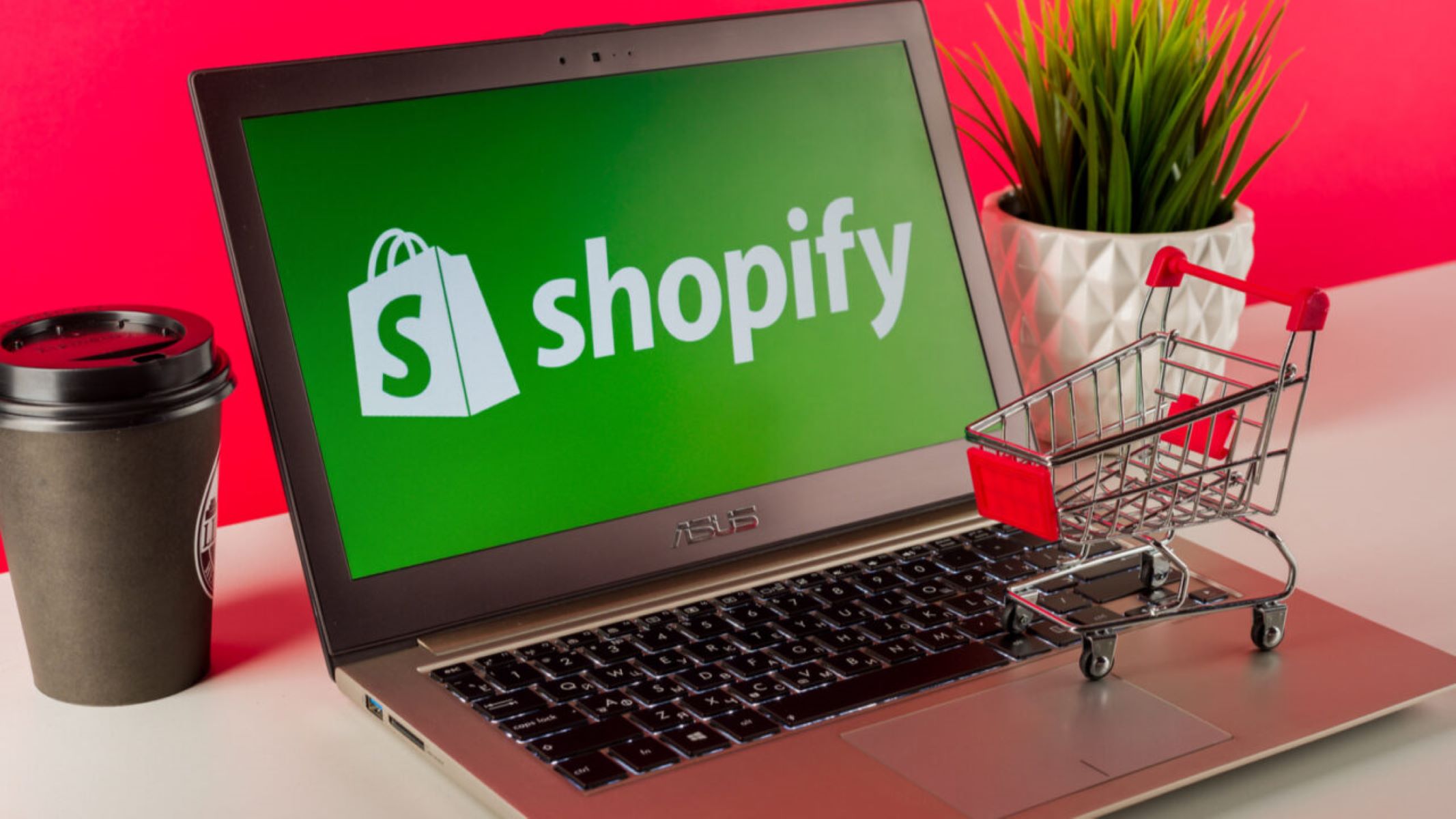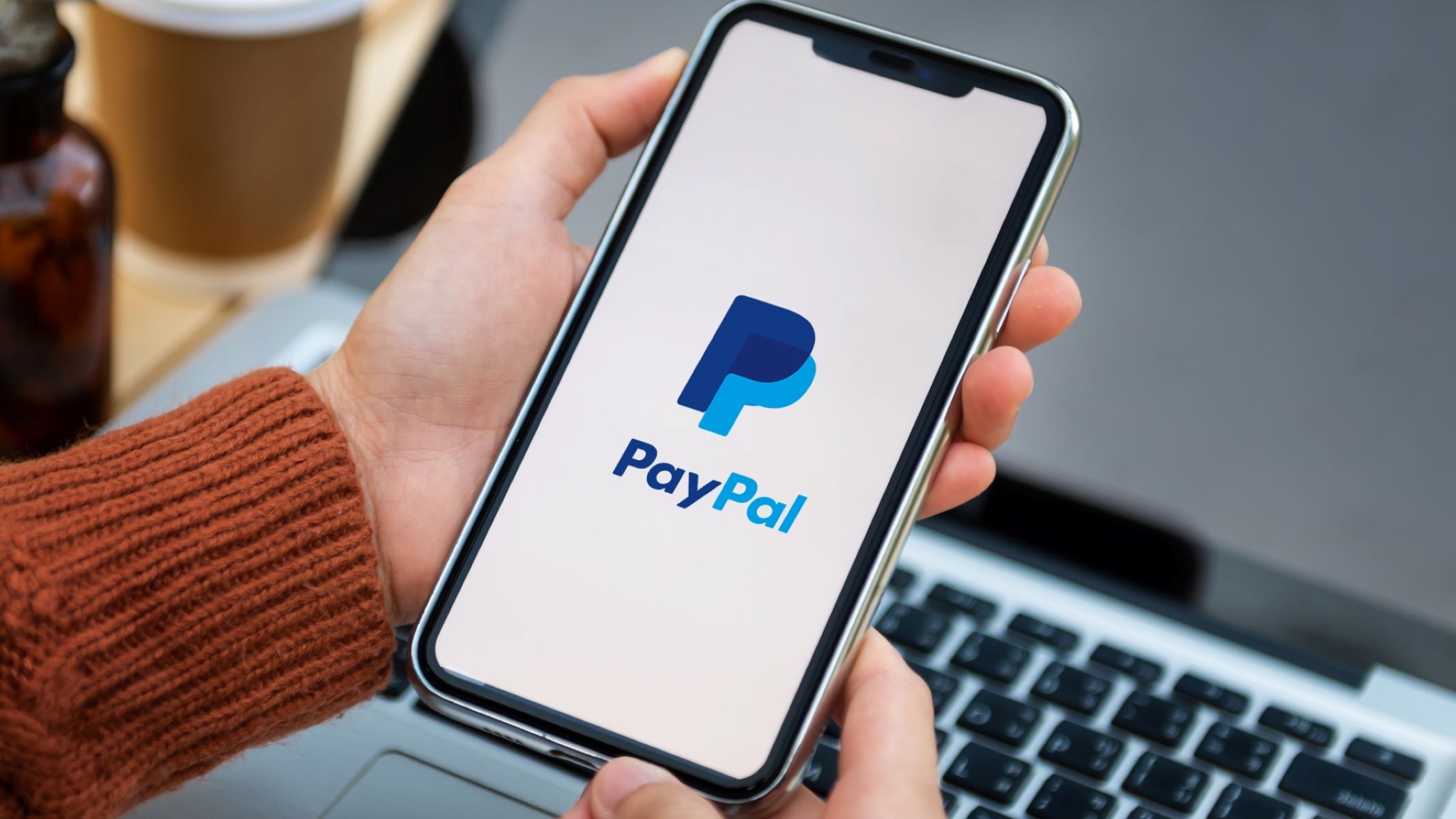Introduction
So, you’ve written an eBook and now you’re wondering where to sell it. With the rise of digital platforms and self-publishing options, there are numerous avenues available to showcase and distribute your masterpiece. Whether you’re a new author or an experienced writer, finding the right platform to sell your eBook can have a significant impact on your success.
In this article, we will explore various options to help you determine the best places to sell your eBook. From online marketplaces and self-publishing platforms to social media and personal websites, we’ll cover a range of options that cater to different needs and preferences. So, without further ado, let’s dive into the exciting world of eBook selling!
Before we begin, it’s important to note that each selling avenue has its own pros and cons. It’s advisable to consider your target audience, the genre of your eBook, and your marketing preferences before making a decision. With that said, let’s explore some of the most popular platforms for selling your eBook.
Online Marketplaces
One of the most effective ways to sell your eBook is through online marketplaces. These platforms provide a large customer base and established systems for selling digital products. Here are some popular online marketplaces for eBook sales:
1. Amazon Kindle Direct Publishing (KDP): As the largest eBook marketplace, Amazon KDP offers great visibility and reach. With its vast customer base, your eBook can be easily discovered by millions of readers worldwide. KDP also provides useful tools for self-publishing, including formatting assistance and marketing options.
2. Barnes & Noble Nook Press: Nook Press is Barnes & Noble’s self-publishing platform, enabling authors to sell their eBooks on the Nook eReader and app. While it has a smaller market share compared to Amazon, Nook Press is still a significant platform, especially for reaching readers who prefer the Nook device.
3. Smashwords: Smashwords is an eBook distribution platform that allows authors to sell their eBooks on various online retailers, including Apple iBooks, Kobo, and Barnes & Noble. The platform offers a simple and straightforward publishing process and provides authors with a wide distribution network.
4. Google Play Books: With millions of users and a vast selection of eBooks, Google Play Books is a popular destination for book lovers. By publishing your eBook on Google Play Books, you can reach readers who prefer Android devices and gain exposure in Google’s extensive ecosystem.
5. Apple Books: Apple Books, formerly known as iBooks, is the default eBook platform for Apple users. Publishing your eBook on Apple Books gives you access to a large and dedicated reader base, particularly those who prefer reading on their Apple devices such as iPhones, iPads, and Macs.
These online marketplaces offer substantial exposure and potential sales for your eBook. However, it’s important to note that the competition can be intense, and marketing efforts are crucial to stand out among the vast array of available eBooks. Utilizing keywords, optimizing book descriptions, and engaging with readers can greatly enhance your chances of success on these platforms.
Now that we’ve explored the world of online marketplaces, let’s delve into another avenue for selling your eBook.
Self-Publishing Platforms
If you prefer complete control over the publishing process and want to maximize your royalties, self-publishing platforms are worth considering. These platforms empower authors to publish and sell their eBooks independently. Here are a few popular self-publishing platforms:
1. Kindle Direct Publishing (KDP): We’ve mentioned KDP in the previous section as an online marketplace, but it also serves as a self-publishing platform. With KDP, you can take advantage of Amazon’s vast customer base and promotional tools to increase your eBook’s visibility. KDP allows you to set your own prices, make updates, and track your sales data.
2. Smashwords: Smashwords not only distributes eBooks to various online retailers, but it also acts as a self-publishing platform. It offers an easy-to-use publishing process and formatting tools, making it accessible to authors with little technical knowledge. Smashwords also provides detailed sales reports and gives you control over pricing.
3. Draft2Digital: Draft2Digital is a user-friendly self-publishing platform that helps authors format their eBooks and distribute them to multiple online retailers, including Barnes & Noble, Apple Books, and Kobo. It offers a streamlined publishing experience and provides authors with comprehensive sales tracking and marketing tools.
4. Lulu: Lulu is a self-publishing platform that allows authors to sell their eBooks directly on their website. It offers customizable templates, digital rights management options, and detailed sales reports. Lulu also offers print-on-demand services, allowing authors to offer both digital and physical copies of their books.
These self-publishing platforms offer a great deal of flexibility and control over your eBook’s publishing journey. You can choose your pricing, cover design, and marketing strategies to suit your needs. However, it’s important to note that self-publishing requires effort in terms of marketing, promotion, and building your author brand. Take advantage of the platform’s resources and invest time in building a strong online presence to maximize your eBook’s success.
Now that we’ve explored self-publishing platforms, let’s move on to another avenue for selling your eBook.
Social Media
Social media platforms have become powerful marketing tools for authors to promote their eBooks and engage with readers. Leveraging the reach and targeting capabilities of social media can significantly boost your eBook sales. Here are some ways to utilize social media for eBook selling:
1. Create an Author Page or Profile: Establish a dedicated author page or profile on platforms such as Facebook, Instagram, Twitter, or LinkedIn. This allows you to connect with your audience, share updates about your eBook, and create a community of loyal readers and fans.
2. Share Engaging Content: Use social media to share excerpts from your eBook, behind-the-scenes insights, writing tips, author interviews, and relevant articles to captivate your audience. Creating valuable and engaging content can attract potential readers and create a buzz around your eBook.
3. Collaborate with Influencers or Book Bloggers: Collaborate with social media influencers or book bloggers who have a significant following within your target audience. They can review your eBook, endorse it to their followers, or participate in author interviews, generating more visibility and interest in your work.
4. Run Contests and Giveaways: Engage your social media followers by running contests and giveaways. Offer free copies or exclusive bonus content to winners, encouraging them to share your eBook with their network. This can generate word-of-mouth publicity and expand your reach.
5. Paid Advertising: Social media platforms provide targeted advertising options to reach specific demographics or interests relevant to your eBook. Utilize paid advertising features to amplify your eBook’s visibility and attract potential readers who may not have discovered it otherwise.
Remember, social media is not just about self-promotion. Interact with your audience, respond to comments and messages, and participate in relevant conversations. Building genuine connections and fostering relationships with readers can lead to increased eBook sales and loyal fans.
Now that we’ve explored the power of social media, let’s move on to another avenue for selling your eBook.
Personal Website or Blog
Having a personal website or blog can be a powerful asset for selling your eBook. It provides you with a platform to showcase your work, connect with your audience directly, and control the entire sales process. Here’s how you can leverage your personal website or blog to sell your eBook:
1. Create a Dedicated Sales Page: Design a dedicated sales page on your website that highlights the key features, benefits, and a compelling description of your eBook. Include eye-catching visuals, testimonials, and snippets from positive reviews to entice visitors to make a purchase.
2. Offer Exclusive Content: Provide exclusive content related to your eBook on your website to attract visitors. This could include bonus chapters, character profiles, author interviews, or even a behind-the-scenes look at your writing process. Make this exclusive content available to readers who purchase your eBook through your website.
3. Build an Email List: Use your website to build an email list of interested readers. Offer a free sample chapter or a special discount to encourage visitors to sign up. Once you have their email addresses, you can send them updates about your eBook, upcoming releases, and exclusive offers.
4. Optimize for Search Engines: Implement search engine optimization (SEO) strategies to improve the visibility of your website in search engine results. Use relevant keywords, meta tags, and optimized content to attract organic traffic from readers searching for eBooks in your genre.
5. Engage with Your Audience: Use your website or blog to engage with your audience through comments, blog posts, or Q&A sections. Encourage readers to leave reviews and share their thoughts about your eBook. This interaction not only builds a loyal reader base but also adds social proof to encourage others to purchase your eBook.
A personal website or blog provides you with the freedom to customize your eBook sales process and interact directly with your audience. It allows you to establish a personal brand and create a unique experience for your readers.
Now that we’ve explored using a personal website or blog, let’s move on to another avenue for selling your eBook.
Email Marketing
Email marketing is a powerful tool for reaching your target audience directly and building a loyal reader base. By leveraging email marketing strategies, you can nurture relationships with your subscribers and promote your eBook effectively. Here’s how you can use email marketing to sell your eBook:
1. Build an Email List: Implement strategies to build your email list of interested readers. Offer a free eBook sample, exclusive content, or a special discount to encourage visitors to subscribe to your mailing list. You can collect email addresses through your website, blog, social media, or author events.
2. Segment Your Subscribers: Divide your email list into segments based on reader preferences, genre interests, or buying behavior. This allows you to target specific segments with personalized content and promotional offers.
3. Create Engaging Newsletters: Send regular newsletters to your subscribers with valuable content related to your eBook and writing journey. Include sneak peeks of upcoming books, author updates, writing tips, book recommendations, and exclusive offers. Make your newsletters engaging and informative to keep subscribers interested in your eBook and brand.
4. Run Pre-launch Campaigns: Prior to launching your eBook, create excitement among your subscribers by running pre-launch campaigns. Send teaser emails, share behind-the-scenes insights, and offer exclusive pre-order discounts or bonuses. This creates anticipation and encourages early purchases.
5. Offer Exclusive Deals and Discounts: Reward your loyal subscribers with exclusive deals and discounts. Offer limited-time promotions, bundle deals, or special pricing for those on your email list. This not only encourages sales but also makes your subscribers feel valued and appreciated.
Email marketing gives you a direct line of communication with your audience, enabling you to nurture relationships and generate eBook sales. However, it’s important to respect your subscribers’ privacy and provide an easy opt-out option to comply with email marketing regulations.
Now that we’ve explored email marketing strategies, let’s move on to another avenue for selling your eBook.
Local Bookstores or Libraries
While online platforms offer great reach, don’t overlook the potential of local bookstores and libraries in selling your eBook. These physical locations provide opportunities for your eBook to reach a local audience and engage with readers in a more personal way. Here’s how you can tap into local bookstores and libraries to sell your eBook:
1. Approach Independent Bookstores: Research and reach out to independent bookstores in your area that may be interested in carrying local or self-published eBooks. Visit the stores in person or contact them via email or phone to pitch your eBook. Provide them with a copy or a digital version for review and consideration.
2. Participate in Local Author Events: Keep an eye out for local author events or book fairs where you can showcase your eBook. These events often provide opportunities for authors to interact with readers, do book signings, and sell their eBooks directly. Contact event organizers and inquire about participation as a local author.
3. Offer Consignment Deals: Some bookstores may be open to consignment deals, where they stock and sell your eBook on their shelves, taking a percentage of the sales. Discuss the terms and conditions with the bookstore owners to determine if this option is suitable for your eBook.
4. Collaborate with Libraries: Approach local libraries and offer your eBook for inclusion in their digital lending platforms or physical collections. Some libraries have programs that allow local authors to showcase their work to library patrons. Participate in book readings or author talks at libraries to promote your eBook.
5. Create Author Connections: Network with other local authors and form author collectives or groups. Together, you can organize joint events, readings, or promotional activities. Collaborating with other authors not only expands your reach but also creates a sense of community support.
Local bookstores and libraries provide a unique opportunity to connect with readers in your community and create relationships that can lead to loyal readership. Don’t underestimate the power of local support and word-of-mouth recommendations.
Now that we’ve explored local bookstores and libraries, let’s move on to another avenue for selling your eBook.
Author Events and Book Fairs
Author events and book fairs offer valuable opportunities for self-published authors to connect with readers, showcase their eBooks, and generate sales. These events allow you to engage directly with your audience, build personal connections, and create a buzz around your work. Here’s how you can make the most of author events and book fairs:
1. Local Author Readings: Contact local bookstores, libraries, or literary organizations to inquire about hosting an author reading. Prepare a captivating excerpt from your eBook and engage the audience with your storytelling skills. Use this opportunity to sell and sign copies of your eBook.
2. Book Launch Parties: Organize a book launch party to celebrate the release of your eBook. Invite friends, family, local readers, and even fellow authors. Use the event to give a brief presentation about your eBook, read an excerpt, and have copies available for purchase. Offer incentives such as signed copies, exclusive merchandise, or special discounts for attendees.
3. Participate in Book Fairs: Book fairs bring together authors, publishers, and readers in one place. Research and register for local or regional book fairs where you can showcase your eBook. Set up an attractive booth, display copies of your eBook, and engage visitors in conversations about your work.
4. Collaborate with Other Authors: Collaborating with other authors at events can expand your reach and attract a wider audience. Consider organizing joint author events or participating in panel discussions on shared themes or genres. Cross-promote each other’s eBooks and recommend them to your respective audiences.
5. Utilize Social Media and Online Promotion: Before and after the event, leverage social media and online platforms to create buzz and drive attendance. Use event hashtags, share updates, and engage with potential attendees. Share pictures and highlights from the event afterward to further promote your eBook.
Author events and book fairs provide an excellent opportunity to showcase your eBook, connect with readers, and build your author brand. They offer a more personal and interactive experience compared to online platforms, allowing readers to engage with you and your work on a deeper level.
Now that we’ve explored author events and book fairs, let’s move on to our final avenue for selling your eBook.
Collaborations with Other Authors
Collaborating with other authors is a smart strategy to expand your reach, tap into new audiences, and increase eBook sales. By joining forces with like-minded authors, you can leverage each other’s platforms and resources to gain more exposure. Here are a few ways to collaborate with other authors:
1. Cross-Promotion: Partner with authors who write in a similar genre or have a similar target audience. Coordinate cross-promotions where you recommend each other’s eBooks to your respective readerships. This can be done through social media, email newsletters, or even guest blog posts.
2. Anthologies or Box Sets: Collaborate with other authors to create anthologies or box sets. Compile a collection of short stories, novellas, or full-length novels and offer them as a bundle. Each author promotes the anthology to their own audience, allowing you to cross-pollinate readership and introduce your eBooks to new potential fans.
3. Joint Giveaways or Contests: Organize joint giveaways or contests with other authors, pooling together eBooks, merchandise, or other prizes. This attracts new readers who may be interested in your eBook and increases the visibility of all participants. Make sure to coordinate the rules, promotion, and prize distribution effectively.
4. Collaborative Events or Webinars: Host joint events or webinars with other authors where you can discuss common themes, writing techniques, or share insights with your audience. This not only provides valuable content but also exposes your eBook to new readers who may be interested in your genre.
5. Co-Authoring: Consider co-authoring a book with another author. This allows you to tap into each author’s strengths, combine their fan bases, and create a unique eBook that appeals to both sets of readers. Co-authoring can introduce you to new readers and expand your network.
Collaborations with other authors can be mutually beneficial, providing increased exposure and access to a wider audience. Remember to choose authors whose writing style and brand align with yours to ensure a seamless collaboration.
Now that we’ve explored collaborations with other authors, we have covered various avenues for selling your eBook. Let’s wrap up our discussion.
Conclusion
Congratulations on reaching the end of our exploration of various avenues for selling your eBook. We’ve covered online marketplaces, self-publishing platforms, social media, personal websites, email marketing, local bookstores, author events and book fairs, and collaborations with other authors. Each avenue offers its own unique benefits and considerations.
When deciding where to sell your eBook, it’s important to consider your target audience, genre, marketing preferences, and overall goals. Online marketplaces like Amazon KDP and Barnes & Noble Nook Press provide broad visibility and reach, while self-publishing platforms like Smashwords and Draft2Digital offer more control and flexibility.
Social media platforms allow for direct engagement with your audience, while a personal website or blog can showcase your eBook and provide a platform for exclusive content. Email marketing enables you to nurture relationships with subscribers and promote your eBook on a personal level.
Don’t forget the power of local bookstores, libraries, and participating in author events or book fairs. These local connections provide face-to-face interactions and the opportunity to build a loyal reader base in your community.
Lastly, collaborating with other authors can expand your reach, tap into new audiences, and create exciting cross-promotion opportunities. Working together can introduce your eBook to a wider readership and establish valuable connections within the writing community.
Ultimately, the best approach is often a combination of these avenues. Experiment, adapt, and evolve your strategy based on your goals, budget, and audience engagement. Remember to leverage your strengths as a writer and continuously explore new promotional opportunities.
Now it’s time to take action. Choose the avenues that resonate with you and align with your eBook’s target audience. Experiment, measure your results, and refine your approach as needed. Your eBook deserves to find its way into the hands of readers who will enjoy and appreciate your unique storytelling.
Best of luck in your eBook-selling journey!

























